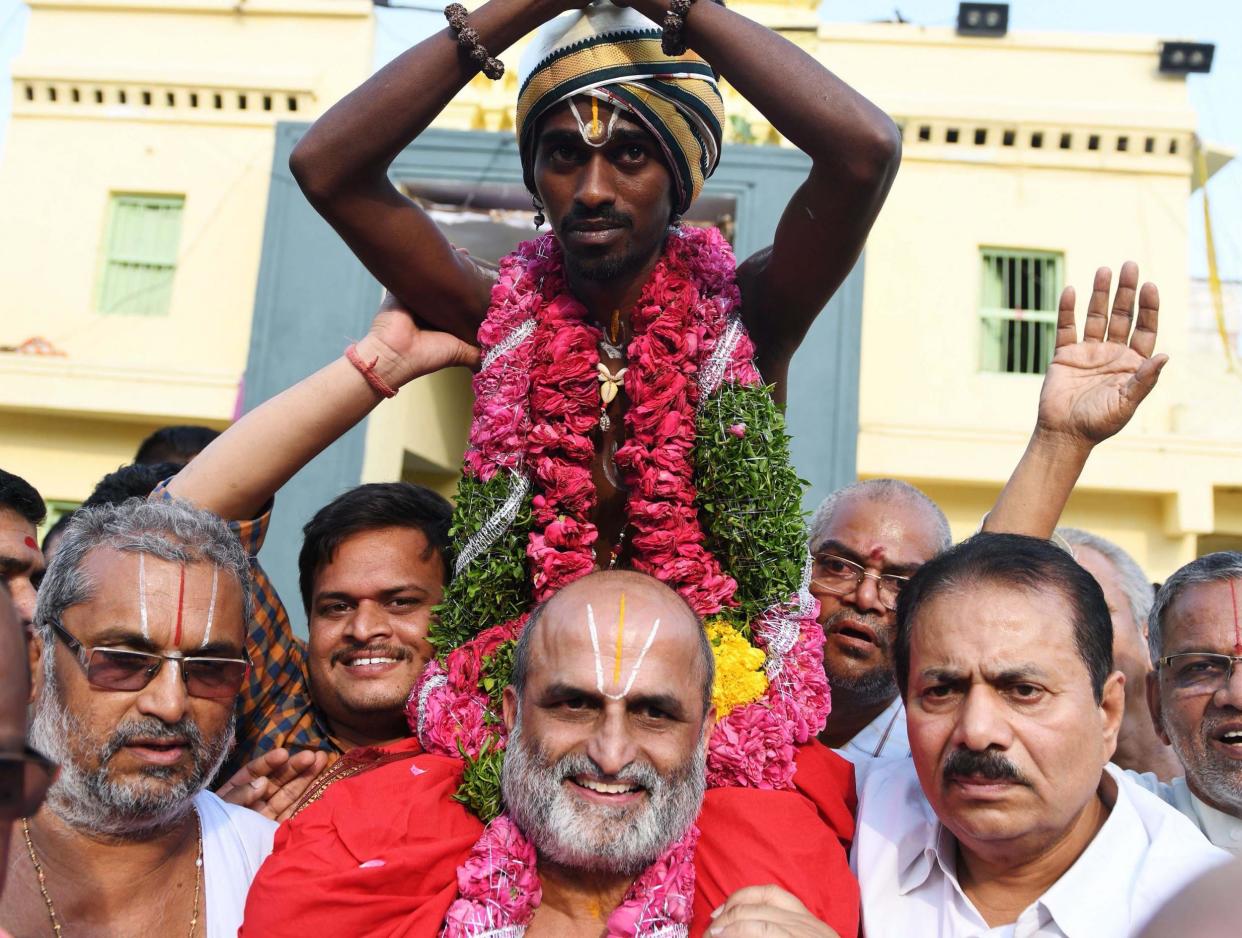Hindu priest carries 'untouchable' into temple to show 'everyone is equal in the eyes of God'

A Hindu priest has carried a Dalit – formerly known as an "untouchable" – man into an Indian temple’s inner sanctum, a move that might once have proved highly controversial in a country traditionally divided down strict caste lines.
The priest, CS Rangarajan, has been widely praised after he carried Aditya Parasri on his shoulders to “propagate equality among all sections of society” and show that “everyone is equal in the eyes of God”.
Dalit, which translates as “broken” in Sanskrit, is a collective term for the lowest castes in a conservative Hindu hierarchy that has seen them face discrimination and segregation from the "higher" castes.
Despite laws to protect them and reserve roles for them in politics and industry, Dalits still face exploitation, violence and unequal access to education and job opportunities.
Mr Rangarajan is the head priest of Chilkur Balaji temple in Hyderabad. He said his act was inspired by a discussion he had at a conference that raised the issue of lower caste communities being denied entry to temples.
He said he told students about a well-known legend in which a priest carried a Dalit devotee into a temple. When they expressed scepticism that a Hindu priest would do such a thing, he decided to do it himself.
"There is a lot of discrimination against Dalits but this stems from society, not from religious scriptures," Mr Aditya told the BBC.
"I hope others do the same - it doesn't mean everyone should literally carry a Dalit man on their shoulders. But they must welcome Dalits into temples and to participate in rituals," he added.
Mr Rangarajan said other priests told him they would now do the same in their own temples .
It comes just weeks after members from the Dalit community protested a Supreme Court ruling that bars immediate arrest of individuals accused of discriminating against them.
Last month, the Supreme Court ruled that arrests under a law meant to speed action on complaints of violence against Dalits required prior sanction from officials, and barred the immediate arrest of those accused in such complaints.

 Yahoo News
Yahoo News 
